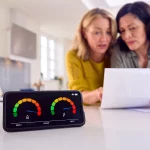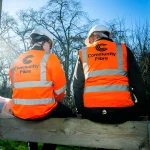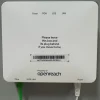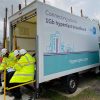The Changing Face of UK Home Phone Lines and Broadband Provision
The way that fixed voice services are delivered and used in the United Kingdom is changing. Over the next few years more and more people across the United Kingdom will gain the ability to take a truly standalone home broadband connection, albeit without a phone (voice) service.
Most of us own a Mobile phone and probably make way more use of it than our dusty home phones, many of which are connected via a copper line over the traditional Public Switched Telephone Network (PSTN / POTS). On top of that a lot of people also complement this with Voice-over-IP (VoIP) services (Skype, Vonage etc.) and or Internet messaging solutions (email, Facebook etc.), all of which are changing how we communicate.
Unsurprisingly voice call volumes for fixed lines are in decline and fell by 9.2% to 74 billion minutes between 2014 and 2015 (Ofcom data), while Mobile grew by 3.9% over the same period to top 143 billion minutes. Similarly total Mobile subscriptions increased by 2% to 91.5 million in 2015.
Advertisement
On the other hand there has been relatively little change in the number of UK fixed lines (it’s been hovering just above 33 million for years) and that’s largely because most of us still NEED it for broadband (ADSL, FTTC / VDSL2, G.fast etc.). However the revenue from fixed voice services has only declined very slightly, which is partly because providers have been propping it up by raising the cost of Line Rental and related bundles.

The fact that most of us still get our Home Broadband over the exact same copper line as the Phone service means that you typically still have to buy both in order to get online, albeit not always from the same ISP. A few years ago we asked our readers whether they would get rid of their fixed phone service if it wasn’t needed for broadband and 64% said they would (here).
The Coming Change
Telecoms and broadband providers have recognised this change in the market and are moving to adapt, which has also been indirectly assisted by the Advertising Standards Authority (ASA) and its recent move to force ISPs into combining the cost of line rental and broadband into a single price (here); the two sides are now harder to separate and thus simpler to compare.
Advertisement
However the main change stems from the fact that operators’ are starting to adopt a broadband-first approach to fixed line service provision, which will also trickle down to the network and infrastructure level. So in the near future you’ll start to see many more packages that allow you to buy a “broadband line“, albeit without the need for a phone service.
Admittedly this won’t wipe out the underlying cost of line rental on copper networks because you’ll still need that line for the broadband side, but it might conceivably save a tiny bit of money if you only need the line for Internet connectivity and don’t want the voice service. Not that you’d notice as the price of broadband will continue to increase due to rising data consumption and other factors (new Government policy demands etc.).
How Operators are Planning for PSTN’s Demise (Ofcom)
* BT is planning to fully migrate customers off its PSTN network by 2025 and is currently trialling the first IP-based voice services that will replace those offered by the PSTN. It is expecting to start piloting a range of new services in late 2017 leading to a full commercial launch thereafter.
* Virgin Media is deploying Fibre-to-the-Home (FTTH/P) under Project Lightning between now and 2019 and we can expect it to move to the adoption of IP voice services to replace its current PSTN based offering.
* KCOM expects around three quarters of its network will have ultrafast capability by the end of 2017 under its Project Lightstream. Consequently, we would expect introduction and increasing adoption of IP voice services over roughly the same timetable.
* TalkTalk and Sky Broadband both already operate an IP-based voice network, albeit still using analogue transmission over the LLU copper connections it buys from Openreach. With the increasing adoption of superfast services, both may choose to migrate customers to “broadband voice“, using the experience gained in the full fibre trial they are undertaking in York with CityFibre.
The growth in pure fibre optic (FTTH/P) based networks from alternative providers, which are data centric and thus don’t carry a traditional analogue phone solution over their optical fibres, is another area driving the shift away from PSTN and towards VoIP. Similarly Ofcom highlights Virgin Media’s FTTP development above, although VM’s existing Hybrid Fibre Cable (EuroDOCSIS) network is also being adapted to support VoIP (here).
Meanwhile Openreach’s (BT) approach will largely involve the adoption of their new Single Order Generic Ethernet Access (SOGEA) and associated SOGfast service, which from around 2018 will allow people to order an FTTC (VDSL2) or G.fast hybrid-fibre broadband service without the need for a phone / voice component (update); the latter will become optional via VoIP.
Advertisement
Some of this shift will require end-users to change hardware (e.g. a VoIP equipped router may become more important), but most of the move should be seamless and if done properly then it could also make retaining your “home” phone number (assuming you take one) much easier than it is today. Far too often people can lose their number during a house move or when switching between two physically separate telecoms networks, although a lot will depend on Ofcom’s future regulation.
On top of that Ofcom are working to ensure that those who prefer to use Mobile or VoIP as their primary means of calling can benefit from better coverage and reliability, which is particularly important with respect to accessing the emergency services.
However there are problems. Many organisations still require people to input a Home Phone number in order to register for something (e.g. certain banks, security checks etc.). Sometimes you can get around this by simply re-entering your mobile number into the home phone box, but we’ve noticed that this doesn’t always work because some forms will check it for UK area codes (this can also cause problems for certain VoIP numbers).
Likewise there are still around 3.2 million voice-only consumers in the UK and these may be frustrated by the idea of having to get a broadband service in order to make calls. On the other hand we expect to see a new type of voice-only router being introduced to help cater for those people. Likewise businesses with old fax machines or dial-up style data links will need to modernise as those services may cease to function.
Never the less the direction of travel is now very clear and indeed quite a few people have already made the move to a network that supports some form of broadband-only connection (e.g. FTTH/P based users), but many more will follow when the major operators join the trend. In time we’ll all have to adapt.
Mark is a professional technology writer, IT consultant and computer engineer from Dorset (England), he also founded ISPreview in 1999 and enjoys analysing the latest telecoms and broadband developments. Find me on X (Twitter), Mastodon, Facebook, BlueSky, Threads.net and Linkedin.
« BT Openreach to Begin Phase 2 Trial of SOGEA Standalone FTTC Broadband

















































Comments are closed